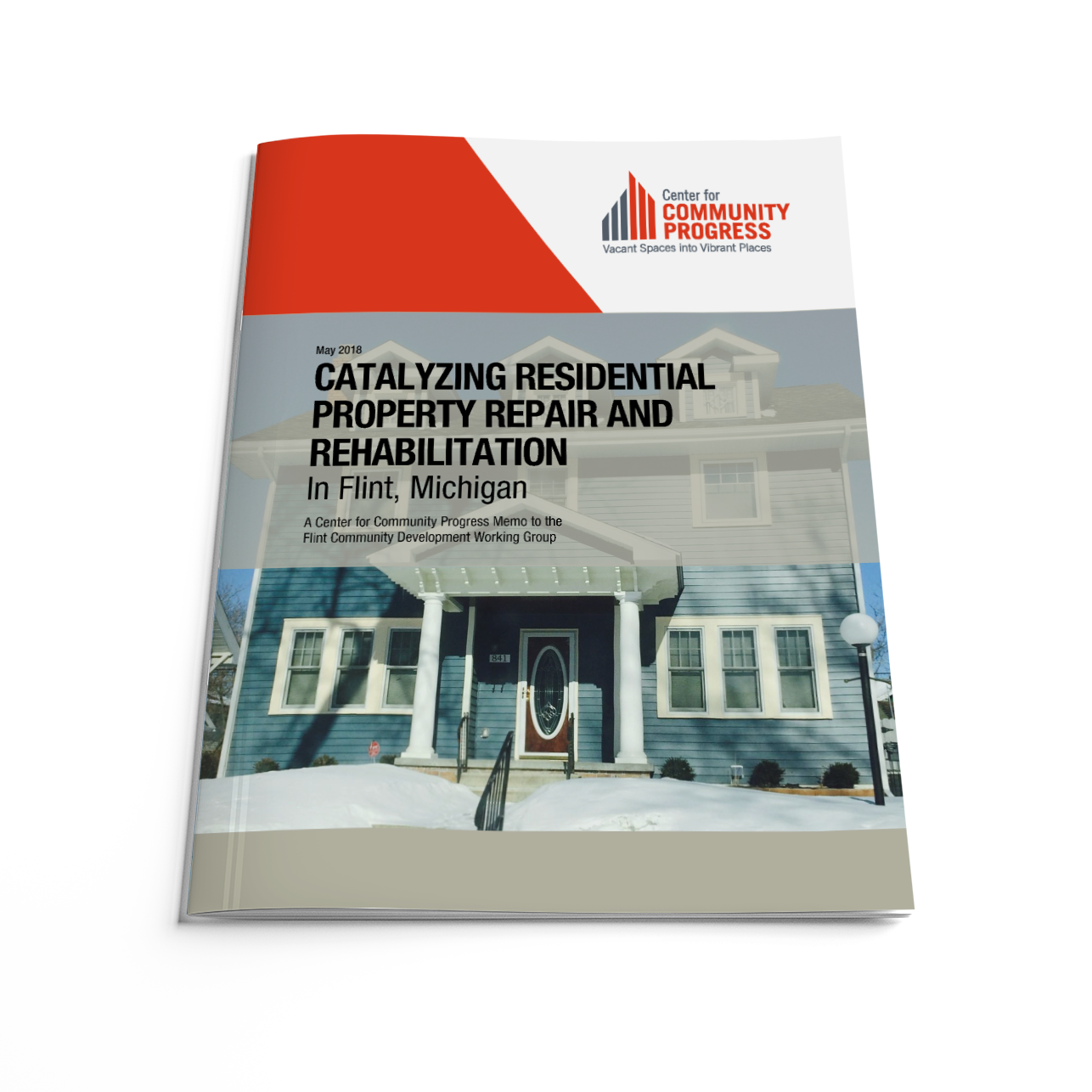
Catalyzing Residential Property Repair and Rehabilitation in Flint, Michigan
A Community Progress Memo to the Flint Community Development Working Group
Topic(s): Local Analysis, Parcel Data & Neighborhood Markets
Published: May 2018
Geography: Michigan
Author(s): Center for Community Progress
The last several years have brought about significant change in Flint’s landscape and built environment. With the collective efforts of creating and launching Imagine Flint and the Blight Elimination Framework, Flint’s vision for itself has never been clearer and strides toward that future are being made every day. While significant progress has been made in eliminating existing blight, substantial work is needed to prevent future blight and current activities are not fully addressing all of the revitalization needs on city blocks. Now that Flint is emerging from immediate water crisis response, the need for increased strategic coordination on revitalization at the neighborhood, block, and even property level, is becoming clearer. This memo details the need for a coordinated, strategic, holistic approach to residential property rehabilitation and recommendations for next steps.
The data and ideas presented in this memo are the culmination of a year’s worth of work by the Flint Community Development Working Group to understand the drivers of and identify solutions to the low volume of residential property rehabilitation in Flint. This memo is intended to serve as a tool to educate other stakeholders and decision-makers on the issue and guide individual and collective decision making around programs, projects, and policies to catalyze residential property rehabilitation in Flint.
In order to increase residential rehabilitation in Flint, neighborhoods must be viewed as an attractive place to live and invest. Tens of thousands of Flint properties in need of rehabilitation risk becoming the next demolition candidates, further reducing the quality of life for Flint residents and straining municipal budgets. To prevent further demolition, Flint stakeholders must come together around a coordinated, strategic, holistic approach to residential property rehabilitation. The Working Group recommendations are:
- Designate a single entity that will be responsible for facilitating and coordinating tactics among partner entities
- Build staff capacity at a coordinating entity whose sole responsibility is to spearhead partner coordination, attract needed new resources, and monitor neighborhood progress
- Identify a starting point for neighborhood-level intervention
- Create capacity to provide a single point of entry for residents seeking home purchase or improvement resources
Immediate next steps to advance the Working Group’s recommendations are:
- The Genesee County Land Bank Authority should evaluate the opportunity to host the “housing rehabilitation coordinator,” and if it chooses to move forward, leveraging the support of the Working Group, it must solicit and secure philanthropic funding for the coordinator.
- The Working Group should discuss the appropriate location for a “housing resource navigator” with the lead/health-focused group.
Topic(s): Local Analysis, Parcel Data & Neighborhood Markets
Published: May 2018
Geography: Michigan
Related Publications
Other Related Content
Get the latest tools, resources, and educational opportunities to help you end systemic vacancy, delivered to your inbox.
